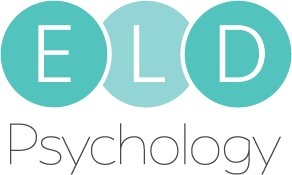What Is A Phobia?
What Is a Phobia?
Most people have at least one thing that they're afraid of. Whether it's a fear of heights, spiders, or even public speaking, phobia types, specific worries, however, may be considered a phobia when the fear is persistent and excessive. People living with Phobia avoid their concerns at all costs or, if unable to prevent them, will endure intense fear or anxiety. Shortness of breath, rapid heartbeat, sweating, and nausea are common symptoms that may be triggered by the phobic object or situation or in anticipation of coming into contact with the object or situation.
Common types of phobias
The most common type of phobia is social phobia (also known as social anxiety). Social phobia is classified as an anxiety disorder and includes extreme anxiety and self-consciousness in social situations. Some people are so afraid of being scrutinised that they avoid certain conditions, such as eating in public. For more information on social phobia, check out another of our articles that discusses this topic.
Agoraphobia is when a person is fearful and anxious in many different situations, including when using public transport, being in open spaces, being in enclosed spaces, being in a crowd, or being outside of the home alone. Typically, individuals who experience agoraphobia fear such situations because of the belief that they may not be able to escape or obtain help if they experience intense anxiety (such as a panic attack or panic-like symptoms) or other embarrassing symptoms.
Other standard categories of specific phobias include:
Situations such as enclosed spaces, flying or heights
Medical contexts, including fear of blood, injections, visiting the doctor or specific medical procedures
Animals or insects, such as spiders, lizards or dogs
Bodily symptoms such as vomiting or choking.
It is not uncommon for individuals to have multiple specific phobias. Research indicates that approximately 75% of people with a particular phobia fear more than one situation or object.
Specific phobias can sometimes develop following a stressful or traumatic event. For example, if an animal attacks you or has an unexpected anxiety/panic attack in the to-be-feared situation.
Related Article: What Is Depression?
What can I do if I am experiencing a specific phobia?
Getting treatment for your phobia may feel awkward and anxiety-provoking, but it is an essential first step to alleviating your anxiety, managing your phobia, and improving your well-being.
One of the best treatments for specific phobias is cognitive behavioural therapy (CBT). This therapy may include techniques aimed at helping identify unhelpful or irrational beliefs associated with the feared object or situation and anxiety management strategies to help cope when anxiety is triggered.
Treatment may also include exposure therapy, such as gradual and repeated exposure to the situation or object that triggers fear and anxiety to challenge irrational beliefs, increase your ability to cope with and manage your stress, and reduce avoidance behaviours.
If you are experiencing fear of a situation or object that is impacting your functioning, it is essential to seek professional help. Here at ELD Psychology, we have experience in treating specific phobias. You can get in touch with us here.
Meet Your Clinical Psychologists In Newcastle
Dr Emma Doolan is a Clinical Psychologist based in Newcastle. With a collaborative and evidence-based approach, she helps clients overcome various challenges such as anxiety, depression, stress, and trauma.
Emma is experienced in cognitive behavioural therapy (CBT) and other modalities like schema therapy, acceptance and commitment therapy (ACT), and compassion-focused therapy. She holds a PhD in clinical psychology and has completed her registration as a clinical psychologist from AHPRA. Emma is a member of several professional associations, including ACPA, APS, AACBT, and APN.
Paige Cornell is a clinical psychologist in Newcastle who has experience in therapeutic modalities such as Motivational Interviewing, CBT, Schema Therapy, DBT, and ACT. She focuses on building a solid therapeutic relationship and tailoring treatment to each individual. Paige has experience in private practice, NGOs, and forensic settings.
She works with a diverse range of mental health issues, including anxiety, mood disorders, PTSD, relationship problems, substance abuse, and offending behaviours. Paige is particularly interested in helping LGBTQI+ individuals and those dealing with trauma and substance abuse. She is fully registered and endorsed as a clinical psychologist and a board-approved supervisor for psychologists. Paige is a member of ACPA and APS, holding a Master's in Clinical Psychology and a Bachelor's in Psychological Science (Honours).
Taylah Armstrong is a Clinical Psychologist in Newcastle. She focuses on developing solid therapeutic relationships to assist individuals in enhancing their well-being and achieving their goals. Taylah is skilled in treating various concerns such as anxiety, stress, mood disorders, trauma, and eating disorders.
She utilises evidence-based therapies like CBT, DBT, and ACT. Taylah has worked in public healthcare, primary care, and education sectors. She is fully registered and endorsed as a clinical psychologist by AHPRA and holds a Master's and Bachelor's degree in Psychology from the University of Newcastle.
Paige Whitfield is a clinical psychologist in Newcastle with experience in private and public health settings. She collaborates with health professionals, families, and schools to provide evidence-based treatments like CBT, Narrative Therapy, and ACT for various issues. Paige has a Bachelor's degree in Psychology (Honours) and a Master's in Clinical Psychology. She is fully registered and endorsed as a clinical psychologist and is a member of APS and ACPA.
Dr Kaitlin Fitzgerald is a clinical psychologist in Newcastle who takes a collaborative and client-centred approach to therapy. She creates a warm and relaxed environment for clients, aiming to make therapy sessions comfortable and even enjoyable. Kaitlin holds a Doctor of Philosophy in Clinical Psychology and a Bachelor of Psychology (Honours) from the University of Newcastle. In addition to her private practice at ELD Psychology, she also works in public mental health treating adults with various mental health issues.
Kaitlin has experience working with a wide range of concerns, such as anxiety, depression, and relationship difficulties. She is skilled in evidence-based therapies like CBT, Schema Therapy, DBT, and ACT. Kaitlin is fully registered as a clinical psychologist with AHPRA and is approved to supervise provisional and registered psychologists.
Eliza Newton is a person-centred Clinical Psychologist dedicated to helping clients explore their deeper selves. She tailors her approach to each client, using psychodynamic therapy for self-exploration or structured techniques like Acceptance and Commitment Therapy, Cognitive Behaviour Therapy, and Schema Therapy. Eliza focuses on individuals overcoming childhood trauma, including Complex PTSD, and helps those with ADHD develop organisational and emotional well-being strategies. With experience in private practice, inpatient settings, and psychiatric rehabilitation, she addresses challenges from anxiety and mood disorders to severe mental illness.
Eliza holds a Bachelor of Psychology (Honours) from the University of Newcastle and a Master of Clinical Psychology from Western Sydney University. She is registered as a Clinical Psychologist with AHPRA and is a member of AAPi and ACPA.
Disclaimer
The content provided on this blog is intended for Australian audiences and is for informational purposes only. It should not be considered as professional psychological advice, diagnosis, or treatment. The information shared here is based on general knowledge and experience in the field of psychology, but it may not be applicable to your specific situation.
Always seek the advice of your psychologist or other qualified mental health provider with any questions you may have regarding a psychological condition or treatment. Never disregard professional psychological advice or delay in seeking it because of something you have read on this blog.
If you are in crisis or you think you may have an emergency, call your doctor, or dial 000 immediately. This blog is not intended to be a substitute for professional advice, diagnosis, or treatment.
The opinions expressed in this blog are solely those of the author and do not necessarily reflect the views of any affiliated organisations or institutions.

